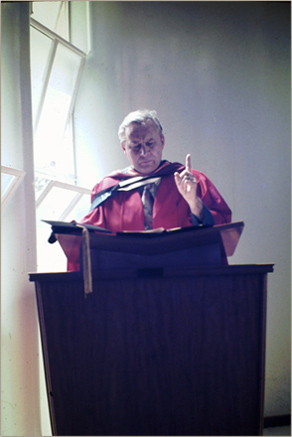Historicalists would agree with Preterists that there is indeed a very important sense in which Christ did come (invisibly) to Jerusalem, in punitive judgment, during A.D. 70. Yet historicists regard the various mentions of His coming inscripturated in Matthew chapter 24 and elsewhere, to refer to events throughout world history which all point principally toward His still-future visible coming on the clouds of heaven in power and great glory at the final judgment. Second Thessalonians chapter 1.
I much respect many elements in Preterism. Yet I believe the consistent teaching in eschatology of the infallible Word of God — is Classic Historicalism. Certainly that is the position of the mainline Christian Church reflected in: the Patristic Fathers; the Mediaeval Scholastics; all of the many Protestant Reformers; the 1561 Belgic Confession (arts. 28 & 29); the Preamble to the 1619 Canons of Dordt; the 1645 Westminster Directory for the Publick Worship of God (in the middle of its Public Prayer before the Sermon); and the unadulterated Westminster Confession of Faith 23:4o & 25:6o B to all of which documents I myself am a Strict Subscriptionist.

